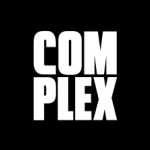

Interview By Justin Monroe. Photograph by Estevan Oriol
Twin directors Albert and Allen Hughes rolled up on the movie industry in 1993 like one of the drive-bys in their classic hood gangster debut, Menace II Society, and shook the world (and anyone who didn't duck got struck). Part of the early '90s boom in indie filmmakers, the Hugheses managed to avoid the "hood" yoke (despite subsequent films Dead Presidents and American Pimp) by directing Johnny Depp in From Hell, the 2001 adaptation of Alan Moore's bloody good graphic novel about Jack the Ripper. Then, as suddenly as they'd appeared, they went their separate ways and dropped off the map.
Now, the 37-year-old brothers have reunited to direct Denzel Washington in The Book of Eli, a futuristic, post-apocalyptic drama that drops in January. We got with the pair for the "Shotcallers" feature in Complex's December/January issue, and now we're blessing you with the extended version of the interview. Read on below to hear their insights on the collapse of society, twins, hood cinema, Alan Moore, and the truth behind the infamous "Tupac incident"...
WATCH THE BOOK OF ELI TRAILER:
Complex: The book in the title is a sacred text Eli's protecting because he thinks it contains the mankind's salvation. Feels like parallels can be drawn between that and any organized religion.
Allen: I used to look down on people who found salvation in one thing, [but] I stopped judging. If a person has found answers in a book, that's good. But having personal faith and going around preaching to people about what they should and shouldn't be doing are two different things.
Albert: You can take good or bad from any book. It just depends what you read into it. One person might read a line and say, "God said it's right to go out and kill an abortion doctor," but you read that line that they're referring to and it could be interpreted as something totally different.
Complex: When have you felt we were closest to society collapsing?
Albert: That would probably be 9/11. I got more fear out of wondering what America's response would be if 300,000 people were taken out. Not the government but the people. If that happened, I think this country would be OK with us bombing a whole country: women, children, babies, and grandmas.
Allen: The first time was the L.A. riots in 1992. My brother and I were both in L.A. at the time and got caught up in it. It was like the system was a hair away from collapsing and never coming back. We were 20 years old at the time, we'd had eight years of Reagan, and Bush Sr. was in office, so at first it felt good, like it was the right thing. Ironically, we were driving through Beverly Hills to go fire our agent when the riots had just touched there. There was no major looting or burning but I remember everybody was trying to flee Beverly Hills, and this one white woman driving her car looked at us in our car and got so scared in the congested traffic that she drove up on to the sidewalk and on lawns and got past us. That was kind of sad, to see how fractured the race relations had gotten, where white people and black people couldn't even look at each other with out thinking something negative.
Complex: Denzel, who's 54 now, did all his own stunts and martial arts sequences for the film. Could you take him?
Allen:[Laughs.]
Albert: Yeah, I would have to give him three shots of tequila and then I think I could take him. [Laughs.]
Allen: There's something to be said about grown-man strength. You forget they're wily veterans. They have too many moves, too much wisdom, and Denzel is one of the wisest ones I've ever come across.
Complex: Why did you two decide to go your separate ways after From Hell?
Allen: That's as complex as the title of this magazine! [Laughs.] To put it in a nutshell, twins aren't like any other siblings. Your mother, at a very early age, makes sure that when she pours Kool-Aid there's not a skoach over or under for either one. It's all based on so-called equality.
Albert: Up until we were 27 or 28, we experienced exactly the same thing at exactly the same time. When we made movies in the '90s, we used to stay in the same place and live together. It just got to be like, we don't need to stay together and we don't need the same friends and we don't need to hang out all the time, and naturally through that we [developed] different interests.
Allen: The twin thing can kind of be a gift and a curse. If I say something about somebody's mother, [Albert] could walk down the alley and catch a cold beatdown for it, you know? [Laughs.]
Complex: While you guys were adapting From Hell, did you interact with Allan Moore at all?
Allen: One time. I hate to take some of the mystique away from the whole Allan Moore thing because people are always like, "He didn't sign off on Watchmen! He didn't sign off on V for Vendetta! He will never watch those movies!" but Allan Moore doesn't give a fuck about the movie. He's not like Stephen King in that way. He told me, straight up, "I did my thing. You go do your thing. It's two different mediums." And that was that. I appreciate it actually, because you don't want an author around you being precious about the source material when he had 700 pages to do that shit!
Complex: Is the "urban gangster" genre dead at this point?
Albert: I think it's over. Thank God for that.
Complex: Why does that relieve you?
Albert: It was just getting silly, like they were just making stupid-ass gangster movies, just niggas with guns, to see if they could get a buck off of it. There was a fascination with it back then, in the hip-hop era, with the nightly news reporting drive-by shootings every day, but white folks are the establishment and don't understand black folks that well, so they were accepting such sub-par filmmaking. They were like, "Oh, that's real!" and it was like, no, that's not real. I mean, we even felt it after Menace. When we finished Menace, we were hard on ourselves, saying, "This is not what we wanted to do."
Allen: Definitely. We thought we had a piece of shit in our hands.
Albert: We wanted the acting and filmmaking to be a lot better, and I wanted to be a lot more hardcore and depict the graphic nature of violence and more details of that lifestyle. At the time, we thought that Boyz N the Hood was spoon-feeding the public. We wanted to shovel the shit on the public unfiltered. Fuck the studio system and everything like that, you know? But the response we got from it is what we'd hoped for from the movie we'd wanted to make. We were like, OK, we're getting a pass because we're 20, we're black, we're twins, and they don't really understand our culture or the nuances of what we were trying to do.
Complex: Movies like Menace and Boyz seemed to inspire the DIY straight-to-video work of rappers like Master P, who made I'm Bout It. Was that flattering?
Albert: I'm not going to hate on another guy for trying to get his story made but I think for the most part it was just complete shit filmmaking and worthless. But more power to them if they can get it out there, you know?
Complex: Whenever people talk about the Hughes Brothers, they bring up how Tupac allegedly jumped you for firing him from Menace. How do you feel being a part of his legend?
Allen: I'm fine with it. The perception that Tupac and us had beef, that was six months maybe of a three-year relationship, most of which was spent being really good friends. It used to bother me more because the stories of the actual incident—
Albert: The way it was reported, it was like, just tell the truth, man. Just say what it was. It was a beatdown, it was a jumping, it was an ambush.
Complex: So what actually happened?
Allen: It was me and Tupac who got in a scrap. Tupac definitely wasn't doing nothing to me. That absolutely did not happen. He's not here to defend himself but all I can say is it was 15 dudes and it was me. Even if you take the hyperbole, I'll make it nine dudes. [Laughs.]
Albert: Tupac hit him from behind. Allen turned around and threw him on top of the car, had such a good grip on him and everybody had to pull him off Tupac and Allen had his chain and it snapped off in Allen's hand. Tupac was like, "Go get my chain!" and he let everybody else go at my brother. Allen got beat up by like 15 guys but he stayed on his feet. I was going up to the set, and by the time I turned around the whole group was coming after me. I got chased away by three cars full of guys.
Complex: Why did you fire him?
Allen: At the time, his life was in turmoil and he was being very disruptive in rehearsals. The makeup people would come in and he'd be like, "I don't wear makeup!" Everything was a problem. I took him to the side to have a talk with him and he was being combative and confrontational. Behind closed doors, we almost got into a physical confrontation. I ended up calling Tupac that night and I said, "Look, if we don't get this on the same page, it's gonna get really ugly on the set and I'm gonna have to relieve you." He said, "Talk to my manager," and he hung up. So I went to New Line and we drew up a letter and we fired him.
Complex: Did the incident make it impossible to see him in a positive light?
Allen: No, not at all. He later apologized for what he'd done and said it was wrong. The only time I feel any negativity is when people get the story twisted or they're looking at that little beef instead of looking at Tupac's story, the bigger picture. It's great we got an icon like that in hip-hop. There ain't nobody like him; Tupac was the first and only rock star in hip-hop. I'm actually proud [of him].
RELATED: COMPLEX'S TOP 100 MOVIES OF THE DECADE!

